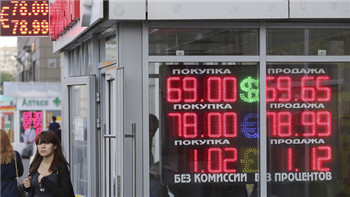(单词翻译:单击)

Weakness in emerging market currencies is hurting global trade by reducing imports without any benefit to export volumes, according to Financial Times research on more than 100 countries.
英国《金融时报》对逾100个国家的研究发现,新兴市场货币疲弱正在伤害全球贸易,因为这削减了进口,却没有促进出口。
The findings suggest that any currency war between developing nations is likely to be even more damaging than previously thought, leading to a reduction in global trade and possibly economic growth, rather than just reapportioning a fixed level of trade between “winners” and “losers”.
该研究似乎说明,发展中国家之间汇率战的破坏性甚至可能超过此前预期,导致全球贸易规模(可能还有经济增长)下降,而不只是在“赢家”和“输家”之间重新分配固定水平的贸易。
The analysis coincides with concerns that some countries are engaging in competitive devaluations in order to undercut their neighbours and steal market share.
这项分析完成之际,有人担忧一些国家为了夺取邻国的市场份额而进行竞争性贬值。
“We risk slipping into a beggar thy neighbour, competitive spiral of currency overshoots and volatility that go with that,” said Mohamed El-Erian, chief economic adviser to Allianz and chairman of US president Barack Obama’s Global Development Council.
安联集团(Allianz)首席经济顾问、美国总统巴拉克攠巴马(Barack Obama)的全球发展委员会(Global Development Council)主席穆罕默德埃尔-埃里安(Mohamed El-Erian)表示:“我们有可能陷入一场‘以邻为壑’、竞争性的货币贬值潮,引发汇率剧烈震荡和波动。”
Since June 2014, the currencies of Russia, Colombia, Brazil, Turkey, Mexico and Chile have fallen between 20 per cent and 50 per cent against the dollar, while the Malaysian ringgit and Indonesian rupiah are at their weakest since the Asian financial crisis of 1998.
自2014年6月以来,俄罗斯、哥伦比亚、巴西、土耳其、墨西哥和智利的货币兑美元汇率下跌了20%至50%,同时马来西亚林吉特和印尼盾处于1998年亚洲金融危机以来的最低水平。


